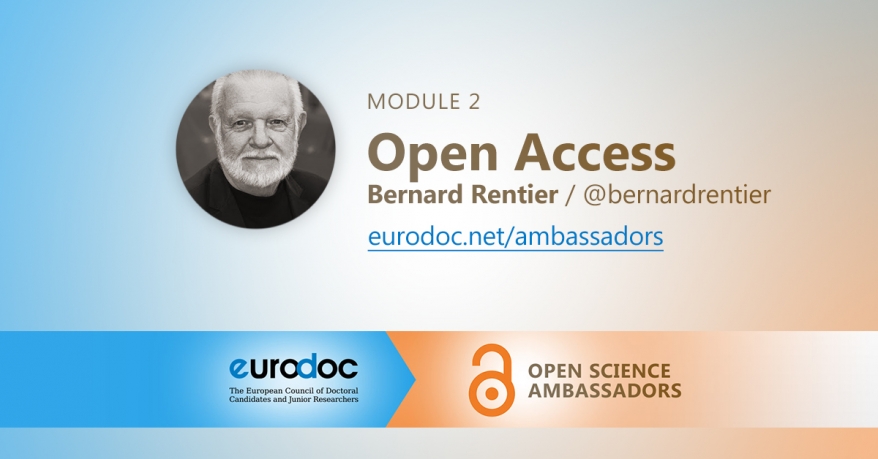
Module Description
The internet has drastically changed our mode and pace of communication. While science is based on the transmission of research, scholarly communication has barely evolved in the age of the internet, and is hampered by the resistance of large publishing companies and the conservative academic establishment. This webinar will explore the history of scholarly publishing and the rise of Open Access to research publications. We will look at the ways to Open Access and argue that immediate Open Access is a moral objective.
Learning Objectives
- Understand the ethical and financial reasons for the development of Open Access
- Identify how to make research open and your rights and duties with Open Access
- Apply Open Access to your own research and gain more impact for your research
Module Preparation
Each module focuses on a specific aspect of Open Science and consists of an optional short preparatory course by FOSTER and a webinar by a specialist on Open Science. For this module please follow the preparatory FOSTER course on Open Access Publishing. To access the FOSTER courses you need to first register on the FOSTER website. See this FAQ for any issues with the FOSTER courses.
Module Webinar
Webinar Presentations
Webinar Specialist
Bernard Rentier is a biologist specialising in virology and immunology and is a member of the Belgian Royal Academy. He has worked in the UK and USA and has been professor and rector at the University of Liège. Bernard developed the ‘Liège Model’ of mandating deposition of scholarly publications in institutional repositories and now advocates for Open Science in his retirement.
Background Literature
- Shockey & Eisen (2012) Open Access Explained
- Schmitt (2018) Paywall
- Rentier (2018) Open Access
- Suber (2004) Open Access Overview
- Buranyi (2016) Is the Staggeringly Profitable Business of Publishing Bad for Science?
 Created by Gareth O'Neill & Ivo Grigorov | Managed by Oleksandr Berezko
Created by Gareth O'Neill & Ivo Grigorov | Managed by Oleksandr Berezko
